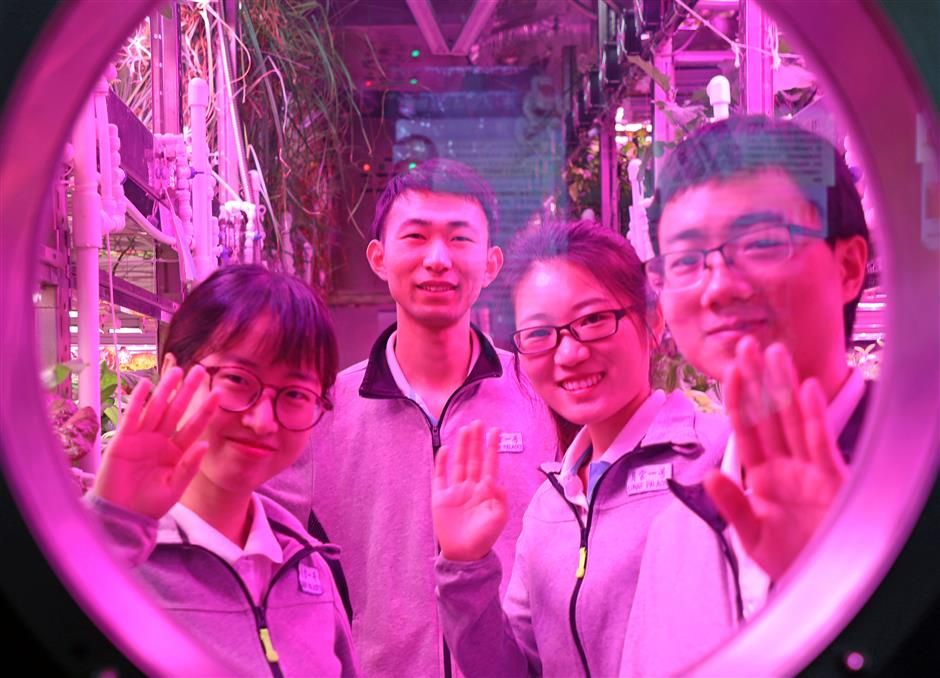
Private Chinese Firm to Build Space Lab by 2025
Article by Deng Xiaoci and Fan Anqi March 14, 2021 (globaltimes.cn)
• In July 2019, China’s manned Tiangong-2 space lab completed 1000 days in orbit before the spacecraft was allowed to burn up in Earth’s atmosphere. The communist state’s first permanent manned space station is to become operational by 2022.
• Now, a private Chinese space technology start-up firm based in Huzhou, East China’s Zhejiang Province has entered the space arena. ‘Rocket Pi’ is working putting a manned space station biology lab into orbit by 2025. The firm’s founder, Cheng Wei, says that the lab will conduct studies relating to changes in human vital signs in space to support the development of future manned space activities.
• In September 2021, a biology experiment platform, ‘Sparkle-1’, is expected to be launched via a Long March carrier rocket. A multi-functional platform supporting biological experiments may be put into orbit by 2022. By 2025, a reusable payload that is able to shuttle between Earth and space objects will provide platforms for in-orbit biopharmaceutical experiments.
• The Rocket Pi space station will also test a self-generating bioregenerative life support system (BLSS) to study the feasibility of long-term human stays on the Moon or other celestial bodies. “The moon lab project simulates a lunar base where humans, animals, plants and microorganisms co-exist in a closed cabin,” said chief designer Liu Hong. “[W]ater and food are recycled within the lab, creating an Earth-like environment.”
• In 2017-2018, eight volunteers took turns living in a 150-square-meter cabin for 370 days as an experiment to study the participants’ physical and mental conditions. Currently, smaller BLSS equipment is being studied, which could be loaded onto space labs as well as Moon and Mars probes.
• By the end of 2022, Rocket Pi plans to launch its own rockets into space, and is currently developing a wide range of launch vehicles to support launches for various payloads of different weights into Low Earth Orbit and into a sun-synchronous orbit. These flexible, reusable rockets will transform the future of space exploration, says Cheng, to support a range of new space infrastructure programs including space labs, satellite-based internet networks and a microbial pharmacy research platform.
• Although these are the very early days, Rocket Pi’s goal of building a space biology laboratory to provide commercial space technology products and services for the biomedical industry heralds the rise of a private commercial aerospace industry in China.
• China has been considering the establishment of an ‘Earth-Moon space economic zone’ by 2050, generating up to $10 trillion a year. Bao Weimin, director of the Science and Technology Commission of the state space giant China Aerospace Science and Technology Corp, revealed the ambitious plan during a seminar on the space economy in November 2019. Bao pledged to complete basic research on key technologies before 2030, establish the transportation system by 2040, and have the Earth-moon space economic zone up and running by 2050.

As China has scheduled 11 launch missions in the next two years for the building of

its first space station, a private space technology start-up based in Huzhou, East China’s Zhejiang Province has been keeping its pace close to the national program, with an ambitious goal of initiating an orbital space biology lab around 2025, firm founder Cheng Wei told the Global Times on Sunday.
It aims to conduct studies relating to changes in humans’ vital signs in space to explore the development of future manned space missions, while also planning to

load a self-generating life support system onboard its lab to study the feasibility of long-term human stays on moon or other extraterrestrial bodies.
Named after rocket plus the Greek symbol representing the ratio of the circumference of a circle to its diameter, Cheng’s firm, Rocket Pi, has a four-step framework toward its ambitious goals.

A single-function biology experiment platform payload, Sparkle-1, is expected to be launched via a Long March carrier rocket by September, while a multi-functional platform supporting biological experiments may be put into orbit by 2022. The company will establish a space shuttle-like mode for platform launches during the same period.

Next, by 2025, reusable payload that is able to shuttle between Earth and celestial bodies will become reality, which will provide platforms for in-orbit experiments for biopharmaceutical studies.
The company aims to launch a program to build the space biology lab after 2025.
Against the backdrop of China putting the construction of a space station, which is expected to become operational by 2022, Rocket Pi aims to conduct studies relating to changes in human vital signs in space to explore and support the development of future manned space activities.
According to material that the company provided to the Global Times, its spacecraft will be very much like China’s manned Tiangong-2 space lab, which successfully left orbit and re-entered the atmosphere in July 2019 in a controlled manner after more than 1,000 days in service, with a small amount of debris falling into a designated security area in the South Pacific Ocean. Most of the spacecraft burned up in the atmosphere.
FAIR USE NOTICE: This page contains copyrighted material the use of which has not been specifically authorized by the copyright owner. ExoNews.org distributes this material for the purpose of news reporting, educational research, comment and criticism, constituting Fair Use under 17 U.S.C § 107. Please contact the Editor at ExoNews with any copyright issue.
'Earth-Moon space economic zone', 'Sparkle-1', Bao Weimin, biopharmaceutical experiments, bioregenerative life support system (BLSS), Cheng Wei, China, Liu Hong, Long March carrier rocket, Rocket Pi, Tiangong-2 space lab